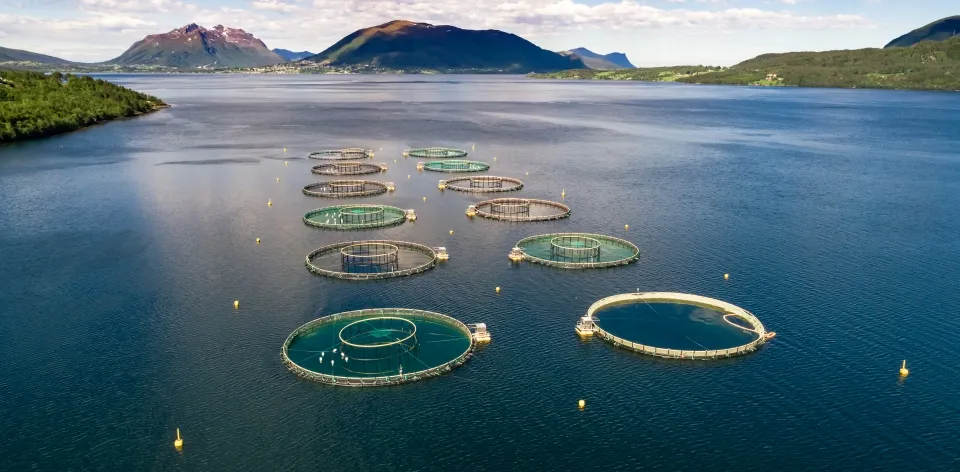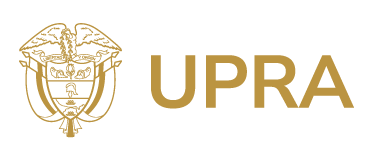 4/9/2024
4/9/2024
#RendiCuentasUpra: The Collective Construction of the Productive Planning Plan (POP) for Aquaculture for Human Consumption Advances

Focused on tilapia, trout, cachama, and farmed shrimp, the second session of sharing the progress of the "Action Plan" took place as part of the Accountability process, in collaboration with stakeholders from the aquaculture chain for human consumption in Colombia.
Learn more about the progress of the Productive Planning Plan (POP) of the aquaculture chain in the following video: https://youtu.be/Ib1UGa_m8_U
Bogotá D. C., (@UPRAColombia, @Claudialili76, @Alexander_r_). With the aim of fostering spaces for public participation and within the technical accountability process of UPRA, the second session of sharing the POP of the aquaculture chain for human consumption in Colombia was successfully held, focusing on species such as tilapia (red and Nile), white cachama, trout, and farmed shrimp.
“These participatory spaces are essential for the aquaculture sector in Colombia because they allow us to build, from and with the regions, this instrument that seeks to organize territory around water. Starting today, September 4, until September 13, we invite all related stakeholders to submit their comments and contributions to the POP of the aquaculture chain for human consumption in Colombia via the channels provided at the following link: https://upra.gov.co/es-co/Paginas/pop-acuicultura.aspx», stated Claudia Cortés López, General Director of the Rural Agricultural Planning Unit (UPRA).
Maryetha Fonseca, a UPRA expert, explained: “The portfolio of programs within the action plan of the aquaculture chain for human consumption species includes programs and strategic initiatives aimed at achieving the vision and expected results proposed in the 'Policy Guidelines' over a 20-year horizon. This portfolio consists of eight programs and 29 strategic initiatives and is aligned with four structural pillars: Productivity and Competitiveness, Social Development, Environmental Management, and Institutional Capacity.”
Additionally, an estimate of the implementation costs for the portfolio of programs was made, considering guidelines and categories defined for this chain, information from the National Aquaculture Chain Council, AUNAP, and experience gained from similar previous programs. “This exercise determined an indicative base value for the execution of the program portfolio, estimated at $1.5 trillion in 2024 constant terms. These resources could come 79.1% from public sources, 8.5% from private sources, and 12.4% from international cooperation. It is important to note that the estimated public support in this costing is intended to incentivize and facilitate private sector investment, which is essential for achieving the expected outcomes of the Plan,” explained Elizabeth Rodríguez, an aquaculture expert at UPRA.
A comparison between the Strategic Plan of the Competitiveness Agreement and the "Action Plan" of the POP for the continental aquaculture chain for human consumption of species like tilapia, trout, cachama, and farmed shrimp was also made, highlighting their alignment and complementarity, commented Alejandro Flórez, leader of the POPs at UPRA.
The technical session on Aquaculture POP, within the framework of UPRA's Accountability, "was held both virtually and in-person and was led by the Ministry of Agriculture, with participation from aquaculturists and associations from various departments, Regional Autonomous Corporations, entities such as MinAmbiente, AUNAP, Finagro, Rural Development Agency, mayors' offices, and governors' offices, as well as representatives from private companies dedicated to aquaculture. They demonstrated the importance of aligning the public and private sectors in the planning of this sector, which has been growing and strengthening in our country with an eye toward national and international markets," concluded Alexander Rodríguez Romero, Technical Director of Efficient Land Use and Land Adaptation at UPRA.
Aquaculture in Colombia is fundamental for the peasant, family, and community economy of rural Colombia, representing an important sector for the production of food for local consumption and export.
Participate and learn more about the collective construction process of the POP for Aquaculture for human consumption in Colombia here: https://upra.gov.co/es-co/Paginas/pop-acuicultura.aspx

